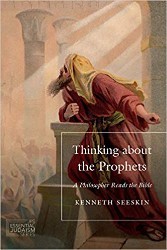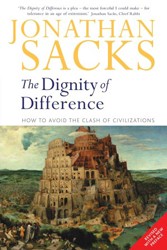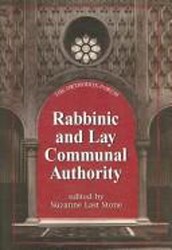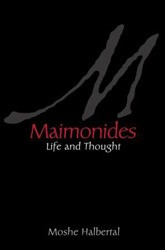Kugel ponders mortality as one instance of an ongoing sense of a “smallness” in the face of a world that overshadows and ultimately controls much of our lives. Our idea of a self that decides the important things in our lives, Kugel reminds us, would be considered strange or incomprehensible to cultures in other places and times. Even science is now doubtful that there is any single “command center” in the brain that corresponds to what we think of as our individual mind. Death, once a familiar reminder of human limitations, is now put out of sight and virtually out of mind; otherwise it might upset our new-found sense of our sovereign selves.
Exploring what he calls the “stark world” of conversion experiences he finds a common theme: a sudden revelation in black-and-white terms that opens a radically different way of seeing the world, one that loses “the detail in favor of the essence.” Prof. Kugel remarks on the “eerie proximity” of that starkness to the everyday world in ancient times, where it was unsurprising that gods and angels would walk among human beings, barely disguised. Inevitably Kugel asks what he calls the “sickening question” of the abundance of unfairness in the world, and it may come as a surprise that he finds an expectation even in polytheistic cultures that the gods nonetheless preferred the world to be mainly good.
Prof. Kugel draws on a daunting array of sources that include the poets Rilke and Housman and Jarrell, Hanna-Barbera cartoons and Wittgenstein, neurobiology and anthropology, Augustine and Herodotus, St. Jerome and the Hebrew Bible. Yet all the while he keeps his conversational, anecdotal tone, even in his translations of his sources. The book is full of fresh ideas, offered by a decent and humble man with a probing interest in the mysterious forces we sense beyond our world.
Interview
Prof. James L. Kugel has received several major awards for his scholarship, including a $200,000 Grawemeyer Award for The Bible As It Was and
Traditions of the Bible. In 2007, he won a National Jewish Book Award for How to Read the Bible, which was also recognized by The New York Times as one of the best books of that year. His latest book is more personal, inspired by his thoughts while being treated for a form of cancer that is often fatal. JBW’s Bob Goldfarb talked with Prof. Kugel about In the Valley of the Shadow at a cafe in Jerusalem.
Bob Goldfarb: A lot of time has passed since the illness that inspired this book.
James L. Kugel: When I started the book it had been seven years since I’d begun my treatment. Part of writing it, part of why I wanted to wait, was to stick myself back into that situation. That was not easy, but after seven years I felt safe. Right after it was over I did other things.
BG: Did you rethink your ideas as a result of the illness?
JLK: I can’t say there was any great reconceptualization. What I wrote about was a certain state of mind; it was what I saw most vividly after I got my diagnosis. Seven years later, though I pretty much returned to my old way of being, I remembered very vividly what that sense of self was like. It had always seemed to me when it was happening that it was something very real. I think everybody at some point comes to his or her senses — you kind of feel yourself fitting into the world in a different way. That was multiplied so much by this experience.
BG: Do atheists feel that way?
JLK: A lot of them try to locate the beginnings of religion in prehistoric times and try to talk about what it was in early man’s brain that led him into this false belief in the gods. All those explanations are projections of the writer’s own self back in time. That seems all wrong to me. Where we came from was a very different kind of self. In earlier times they felt a sense of smallness; that they fit in the world more than we do.
I don’t mean to say that our sense of smallness has any ethical dimension. I guess I wish it did, but I’m not sure. I say it’s a kind of somatic smallness and that’s what I mean — fitting in your own borders, just being the person you happen to be.
BG: Is there a way to recover that sense of smallness?
JLK: I’ve always thought it’s connected to something basic in religion. I’m not sure there’s any studying one can do to will it into existence. But I think people who practice a particular religion may have a bit of an advantage because it pushes you in that direction. I’ve thought the most one can do is, in reading about it or talking about it, to be more attuned to one’s own state of mind, so that if it comes along you’ll know it. It’s part of our patrimony from our ancient past. At one time it didn’t need to be said out loud; it was taken for granted.
BG: You quote Koheleth (Ecclesiastes), who says that even the most memorable person is eventually forgotten. What has your experience taught you about how to live in the face of that knowledge?
JLK: I’ve always liked the first chapter of Koheleth, his insistence that for every action there’s an equal and opposite reaction. Koheleth is complicated:
he questions the canons of wisdom literature, but he comes out of the school of Israelite sages.
To me life is like a painting. Everyone is given a canvas, you get to work on it for a certain number of years, and you get to do one painting. You can do with it whatever you want. It becomes more and more detailed. It’s done when the last detail is added. We all want, or should want, to do the best painting we can. In this kind of painting everyone is absolutely equal. You just have to come up with the best painting you can.
Bob Goldfarb is President Emeritus of Jewish Creativity International.





